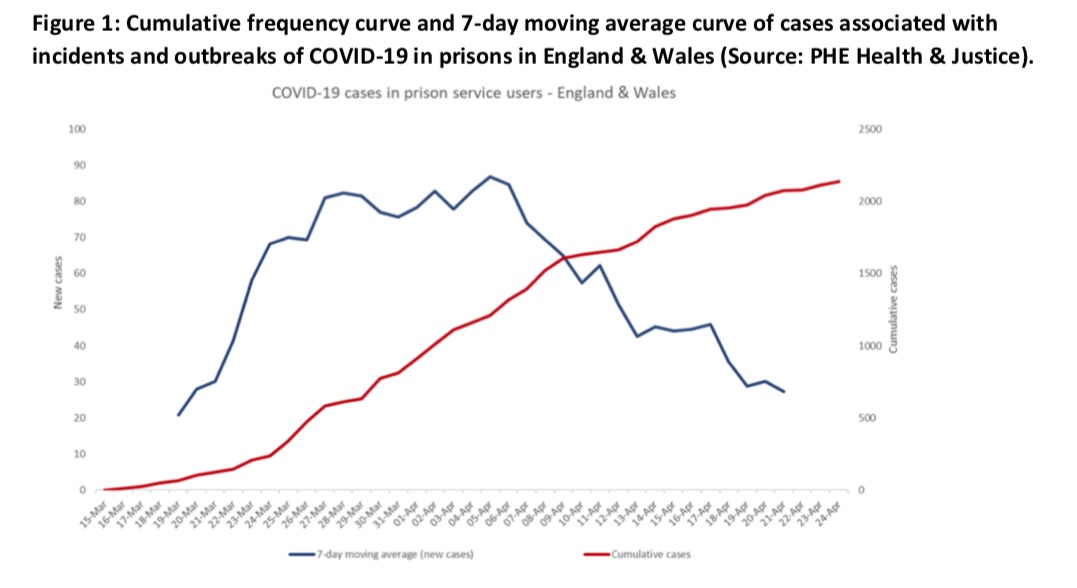Only 33 prisoners had been let out under the government’s Covid-19 early release scheme under which the Ministry of Justice originally claimed 4,000 inmates could be allowed out to relieve pressure on overcrowded jails.
The Justice Secretary, Robert Buckland, told MPs that 13 prisoners had died as a result of the coronavirus outbreak and some 280 other cases had been diagnosed. As reported last week the early release scheme had been suspended after six prisoners were released as a result of ‘administrative error‘.
Meanwhile a new report from Public Health England has reported 1,783 ‘possible/probable’ infections compared to the approximately 300 confirmed across jails in England and Wales. ‘The key concern at the start of the pandemic was the risk of “explosive outbreaks” of COVID-19 in prisons with people living & working at close quarters in often over-crowded conditions at a time when the prison estate was at 97% of its operational capacity for population,’ the report said. The health watchdog noted that the data suggested that the ‘explosive outbreaks’ were not being seen. ‘Instead, there is evidence of containment of outbreaks,’ it said. ‘This may be driven by increased social distancing and compartmentalisation…’
 PHE noted that ‘the most effective form of compartmentalisation’ was single-cell accommodation; however it was recognised that ‘this would require significant reductions in prisoner population to achieve across the prison estate (about 15,000 people was the estimate at the time the original advice was provided)’.
PHE noted that ‘the most effective form of compartmentalisation’ was single-cell accommodation; however it was recognised that ‘this would require significant reductions in prisoner population to achieve across the prison estate (about 15,000 people was the estimate at the time the original advice was provided)’.
‘While the current situation is cause for cautious optimism, significant threat levels remain,’ the report said. It flagged an outbreak at HMP Birmingham which was successfully contained and the PHE noted subsequent newly diagnosed cases all came ‘directly from reception’. The report noted ‘highly effective reception screening’ needed to be in place to identify symptomatic patients plus effective quarantine for 14 days before prisoners were admitted to the general population.







